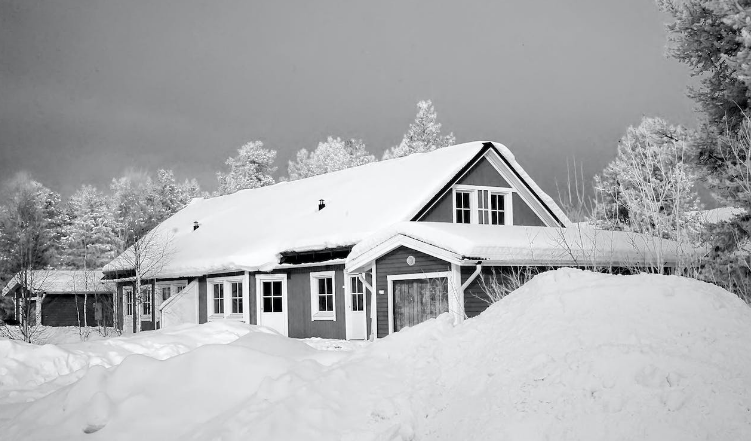In winter, many of us prefer to stay inside and get cozy by a warm fire. However, if you aren’t prepared for cold weather, your home can become very uncomfortable—and even dangerous. To ensure that you and your family are safe throughout the winter months, it’s essential to take proactive steps to winterize your home before the temperature drops too low.

Inspect Your Heating System
Before cold weather sets in, it’s a good idea to have your heating system checked out by a professional. This will help you identify any potential problems before they happen so you can fix them before temperatures drop too low. A professional can also check for carbon monoxide leaks and perform necessary maintenance or repairs so your system runs safely and efficiently all season long. In addition, ensure your fans are running correctly. The fan direction for winter should be set clockwise, which pushes the warm air down from the ceiling.
Check Your Windows and Doors
Your windows and doors are important barriers against cold air, but if they’re not properly sealed, they can let in drafts that make the inside of your house colder than the outside! To prevent this from happening, ensure all windows are tightly shut during colder months and caulk or seal any gaps or cracks around them. You should also check weather stripping seals on exterior doors and replace any worn or damaged ones. If you’re looking for extra insulation, consider installing plastic sheeting on the insides of window frames to prevent heat loss through glass panes.
Clean Out Gutters and Downspouts
Gutters protect your home from water damage caused by freezing temperatures. Before winter hits, clean out gutters and downspouts so that melting snow doesn’t accumulate there and cause ice dams on your roof—which could lead to severe structural damage over time! Taking this step now can save you costly repairs later on down the line.
Deep Clean Your Home
It may seem counterintuitive, but deep cleaning your home in preparation for winter is incredibly important! Dust mites thrive in dusty environments, which means that if you don’t regularly clean during winter months (which tend to be drier), dust mites will have an easier time reproducing—which can trigger allergies or asthma flare-ups in sensitive individuals. In addition, vacuuming regularly (especially carpets) with a HEPA filter vacuum cleaner can reduce indoor allergens significantly while helping keep air quality high throughout the season and maintain peak energy efficiency, as dirt build-up affects energy consumption.
These are just a few tips on preparing your home for wintertime weather conditions, but you can do many more things! From inspecting smoke alarms to ensuring outdoor water pipes are adequately insulated, these measures will ensure that you and your home stay safe all season long! If ever in doubt about how best to prepare for cold temperatures, consulting with a professional contractor would be wise as they will provide expert advice tailored specifically to meet individual needs. With these simple steps taken care of now, all that’s left is for us to enjoy the winter season!

Leave a Reply